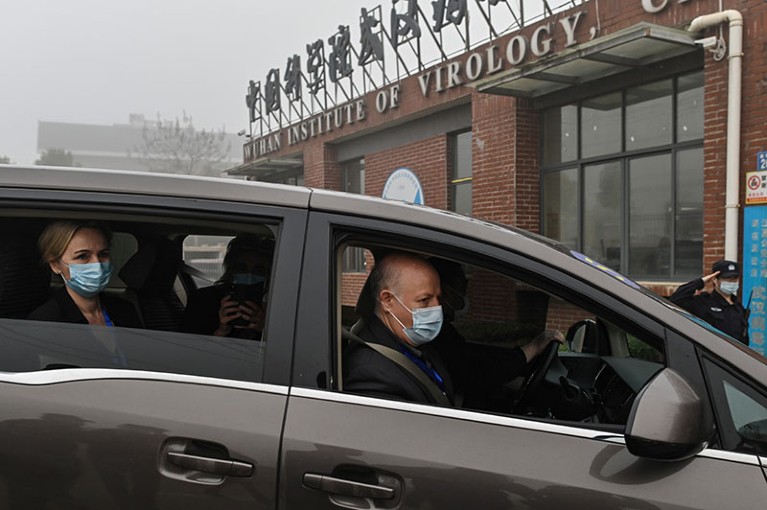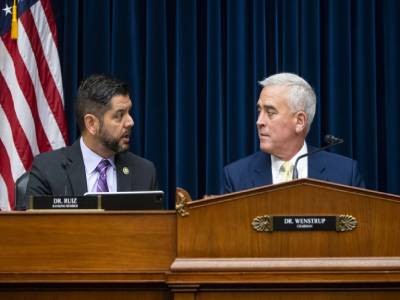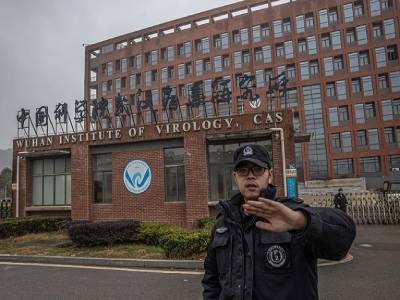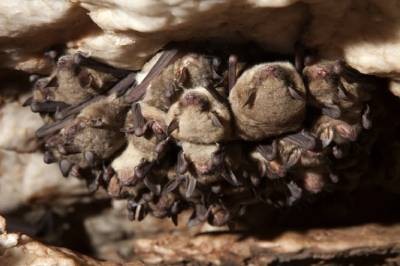[ad_1]
Republicans in the US House of Representatives publicly grilled infectious disease specialist Peter Daszak today during a long-awaited hearing on Capitol Hill. In their questioning they suggested that Daszak and the nonprofit organisation he heads, EcoHealth Alliance in New York City, knowingly conducted dangerous research by studying coronaviruses with a virology lab in Wuhan, China, where the first COVID-19 cases were reported during the pandemic.
US COVID-origins hearing puts scientific journals in the hot seat
Democrats disputed that there was any evidence that EcoHealth played a part in triggering the pandemic, but did hold Daszak’s feet to the fire over his organisation’s failure to submit a progress report on time to the federal government regarding a research grant it had been awarded by the US National Institute of Allergy and Infectious Disease (NIAID). They also called out Daszak for “questionable conduct”: inconsistencies in testimonies previously given and documents submitted to the group running the hearing, the Select Subcommittee on the Coronavirus Pandemic.
EcoHealth “potentially misled the federal government on multiple occasions” in terms of being transparent and adhering to reporting requirements as a recipient of federal funding, said Raul Ruiz, a Democratic representative from California and the ranking member of the subcommittee.
At the start of the hearing, subcommittee chairman Brad Wenstrup, a Republican representative from Ohio, announced the findings of a report evaluating EcoHealth’s research activities issued earlier in the day. The interim report, released by the subcommittee’s Republican members, states that EcoHealth failed to disclose high-risk, so-called gain-of-function research that it conducted in partnership with the Wuhan Institute of Virology (WIV), and recommended that the organisation be barred from receiving future federal funds and criminally investigated.
NIH to intensify scrutiny of foreign grant recipients in wake of COVID origins debate
Daszak disputed that the work carried out by EcoHealth and the WIV meets the definition of gain-of-function research. To meet that definition, he said, an experiment would need to have a likelihood of increasing a virus’s transmission or pathogenicity, and that the virus would already have to be known to infect humans. “Because the work we were doing was on bat coronaviruses, it was not covered by those rules,” Daszak said, referring to a definition used by the NIH to evaluate grants involving pathogen research. Wenstrup, who said the researcher had been “less than cooperative”, suggested that Daszak was using semantics to obscure the definition of gain-of-function research, which more generally confers new abilities to pathogens.
The hearing’s intense scrutiny of Daszak and EcoHealth could disincentivize other US scientists from proposing collaborations with colleagues in China and other countries, a process that is considered essential for pandemic prevention and preparedness, says Lawrence Gostin, a health-law and policy specialist at Georgetown University in Washington DC. Researchers need to be able to study new viruses in the locations where they are emerging. “It is extraordinarily important for Western-based scientists in the United States, the UK and other places to have strong working relationships with scientists around the world, including in China,” he says.
Angela Rasmussen, a virologist at the University of Saskatchewan in Saskatoon, Canada, says she was disappointed that the Democrats joined the Republicans in what she says was “essentially an attack on science”. “It’s a very dangerous situation because most scientists who are approaching any problem — whether it’s the origins of the pandemic, whether it’s anything else — are going to think twice: should I actually get involved in research that is high impact but potentially politically controversial?”
A long-standing collaboration
Daszak has been a lightning rod in the COVID-19 origins debate, in which some researchers have argued that the SARS-CoV-2 coronovirus passed to humans naturally, from animals, and others have suggested it could have escaped from the WIV. When the COVID-19 pandemic began, EcoHealth, which aims to identify pathogens that could trigger pandemics and find solutions to them, had been collaborating with researchers in China for more than 15 years, studying coronaviruses in bats.
However, once the COVID-19 pandemic was in full force, in April 2020, the US National Institutes of Health (NIH) terminated a grant it had awarded EcoHealth for research in this vein. The WIV was a subawardee on this grant — a partner that was given funds to carry out some of the research proposed by EcoHealth. The termination was announced shortly after then-president Donald Trump, who had been publicly implying that China was to blame for the pandemic, told a reporter at a press conference that the government would stop funding the WIV.

Daszak visited the Wuhan Institute of Virology in early 2021 as part of a team assembled by the World Health Organization to investigate the origins of the COVID-19 pandemic.Credit: Hector Retamal/AFP via Getty
About five months earlier, Daszak and 26 other scientists published a letter in the scientific journal The Lancet1, attempting to dispel rumours about China’s involvement in the pandemic. “We stand together to strongly condemn conspiracy theories suggesting that COVID-19 does not have a natural origin,” the letter said. Although the letter declared the authors had no competing interests, critics would later point out Daszak’s close ties to scientists in China and suggest that this letter stopped the scientific community from truly considering the lab-leak hypothesis early in the pandemic.
Later that year, his ties to China would once again become an issue when Daszak was selected by the World Health Organization (WHO) to be part of an investigative team exploring the origins of the COVID-19 pandemic. Observers at the time worried that his relationship with Chinese researchers would endanger his ability to impartially conduct the investigation, which took place in early 2021.
At the hearing, Ruiz pressed Daszak about The Lancet letter and why he hadn’t declared competing interests. Daszak said that the letter was attempting to address specific conspiracy theories circulating early in the pandemic, including that SARS-CoV-2 contained snake DNA, rather than trying to cut off any exploration of the lab-leak hypothesis. He also pointed out that competing interests were added to the letter. They indicated that his salary is paid by EcoHealth and that the organisation works with a “range of universities and governmental health and environmental science organisations” in China – without naming the WIV specifically.
Biosafety questions
Another issue raised at the hearing was a grant proposal submitted in 2018 by Daszak and colleagues, including those at the WIV, to the US Defense Advanced Research Projects Agency (DARPA). The goal of the project, which DARPA did not ultimately fund, was to ‘defuse’ the threat of bat-borne coronaviruses by engineering the viruses to infect humanised mice and assess their capacity to cause disease. On the basis of a draft of the proposal obtained via a Freedom of Information Act request, politicians at the hearing suggested that Daszak attempted to downplay the role that Chinese collaborators would have in the project to increase its chances of being approved. Daszak denied this and said that he contacted DARPA to check that it was okay to include the WIV on the proposal.
“A lot of the discussion about what was written in the marginalia of the early draft of that proposal could probably apply to anybody’s grant proposal for any agency,” Rasmussen says. “That’s the normal process of grant writing. And it’s sort of shocking to me, but also kind of hilarious, that people are reading so much into these notes.”
NIH reinstates grant for controversial coronavirus research
Republican representatives repeatedly questioned Daszak about whether the WIV had the appropriate biosafety levels to conduct the coronavirus research specified in the un-funded 2018 proposal.
Gigi Kwik Gronvall, an immunologist at Johns Hopkins University in Baltimore, Maryland, says that the response to biosafety concerns in other countries shouldn’t be to avoid working with those countries, but to partner with them to provide training and promote better practices. “If we want US science to be the standard-setter for safety, for security, for social responsibility, then we have to be a leader. And that means partnering with countries to help solve their public-health problems.”
Anthony Fauci, who was head of NIAID when EcoHealth received its grant to study bat coronaviruses with the WIV in 2014, will testify before the subcommittee on 3 June.
[ad_2]
Source Article Link




